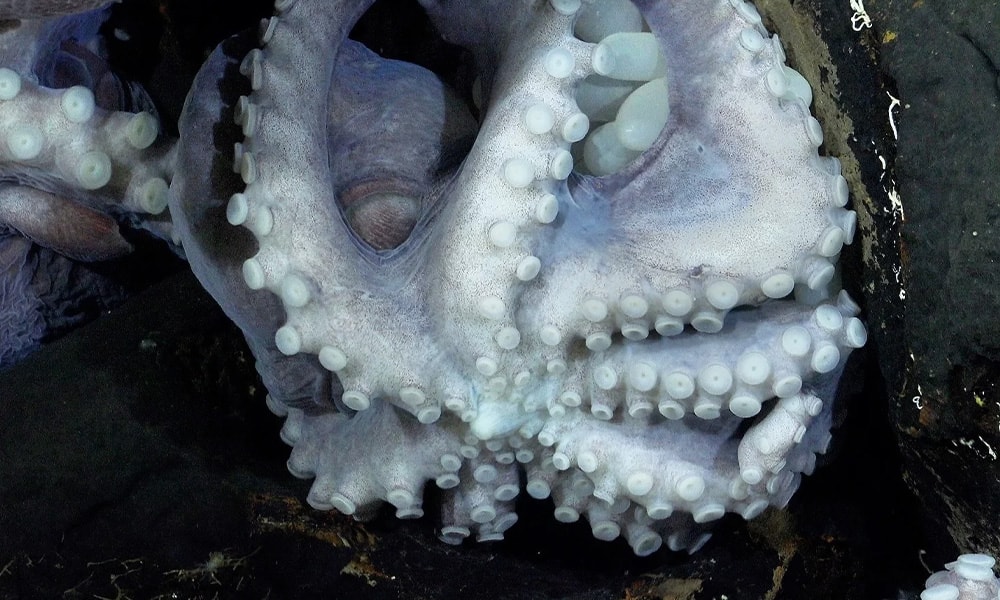Scientists from the Schmidt Ocean Institute have made an exciting discovery in Costa Rica—a new deep-sea octopus nursery located at a “low-temperature hydrothermal vent.” Using the underwater robot ROV SuBastian, the researchers were able to observe the seamounts and baby octopuses in this unique habitat.
With this finding, the number of known octopus nurseries in the world has increased to three, as emphasized by the international team of researchers involved in the expedition. Led by Dr. Beth Orcutt from the Bigelow Laboratory for Ocean Sciences and Dr. Jorge Cortes from the University of Costa Rica, the nineteen-day exploration took place aboard the Schmidt Ocean Institute’s vessel Falkor, accompanied by eighteen other international experts.
A scientific publication associated with the expedition suggests that the discovery could potentially reveal a new species of octopus called Muusoctopus, described as a small to medium-sized octopus without an ink sac. The experts also concluded that some of these species specifically seek out low-temperature hydrothermal vents as brooding sites for their eggs.
The researchers were delighted to confirm that the Dorado Outcrop, initially discovered in 2013, serves as an active nursery. It was the first instance where female octopuses were observed gathering together to brood their eggs. However, the absence of developing embryos in this nursery led the team to believe that the conditions there do not support octopus growth.
Dr. Jyotika Virmani, the Executive Director of the Schmidt Ocean Institute, expressed the significance of the recent discovery, stating, “The discovery of a new active octopus nursery over 2,800 meters beneath the sea surface in Costa Rican waters proves there is still so much to learn about our Ocean.” This finding further underscores the need for continued exploration and research.
During their exploration of Costa Rican waters, the team encountered hundreds of animals, many of which are suspected to be new species. The awe-inspiring footage collected by ROV SuBastian showcased tripod fish, octopus hatchlings, and coral gardens, offering a glimpse into the fascinating deep-sea environment.
Unfortunately, these seamounts remain unprotected from human activities. Recognizing this, the team is now actively considering whether they should be designated as “marine protected areas” to ensure their preservation.
Dr. Cortes concluded, “This expedition to the Pacific deep waters of Costa Rica has been a superb opportunity for us to get to know our own country. The information, samples, and images are important to Costa Rica to showcase its richness and will be used for scientific studies and outreach programs to raise awareness about the significance of preserving our natural treasures.”
The discovery of the new octopus nursery and the subsequent exploration of Costa Rican waters serve as reminders that the ocean still holds many mysteries waiting to be unveiled. Through further scientific research and conservation efforts, we can continue to protect and appreciate the wonders of our incredible ocean.






